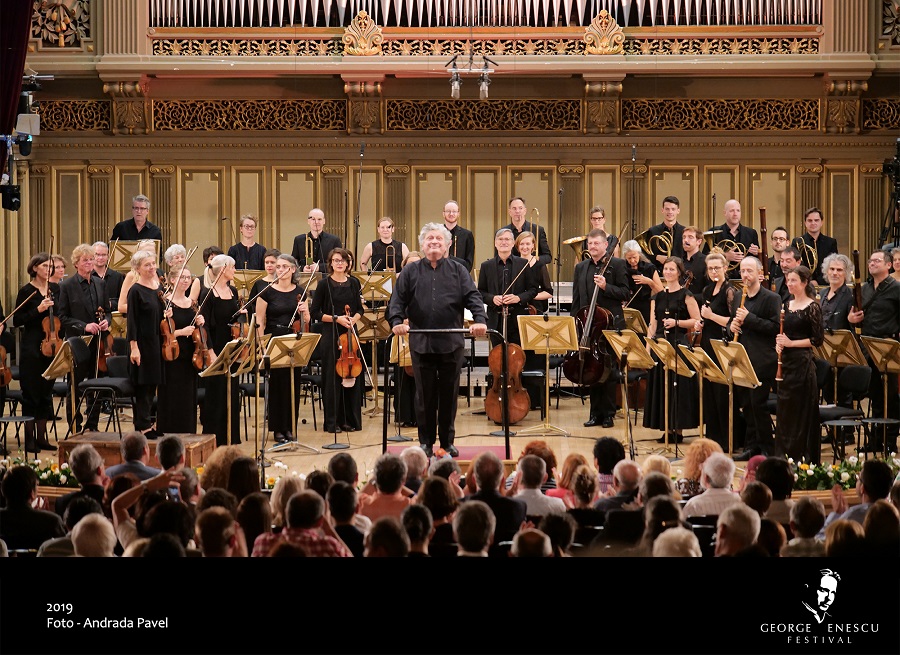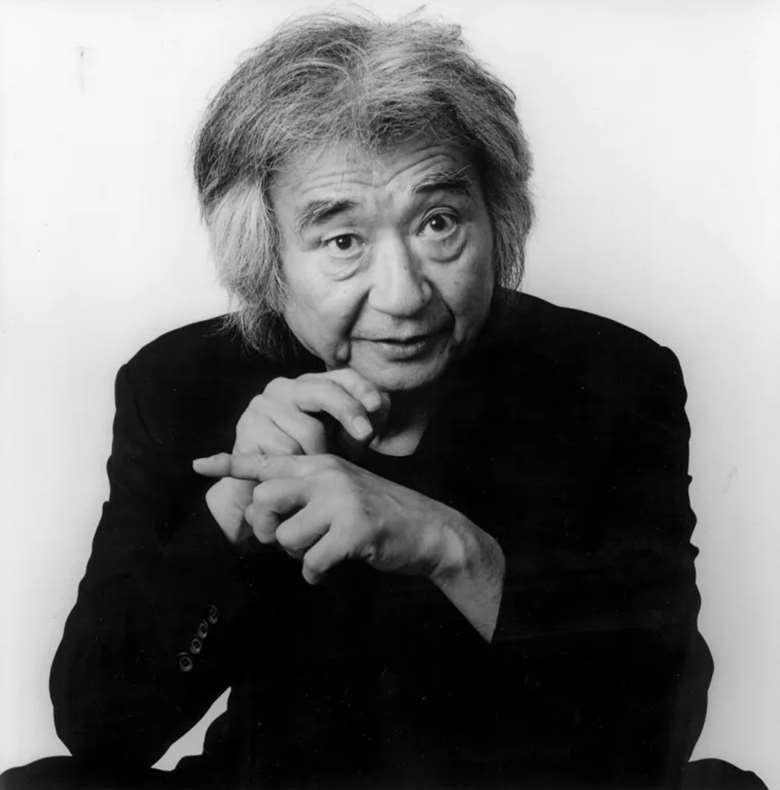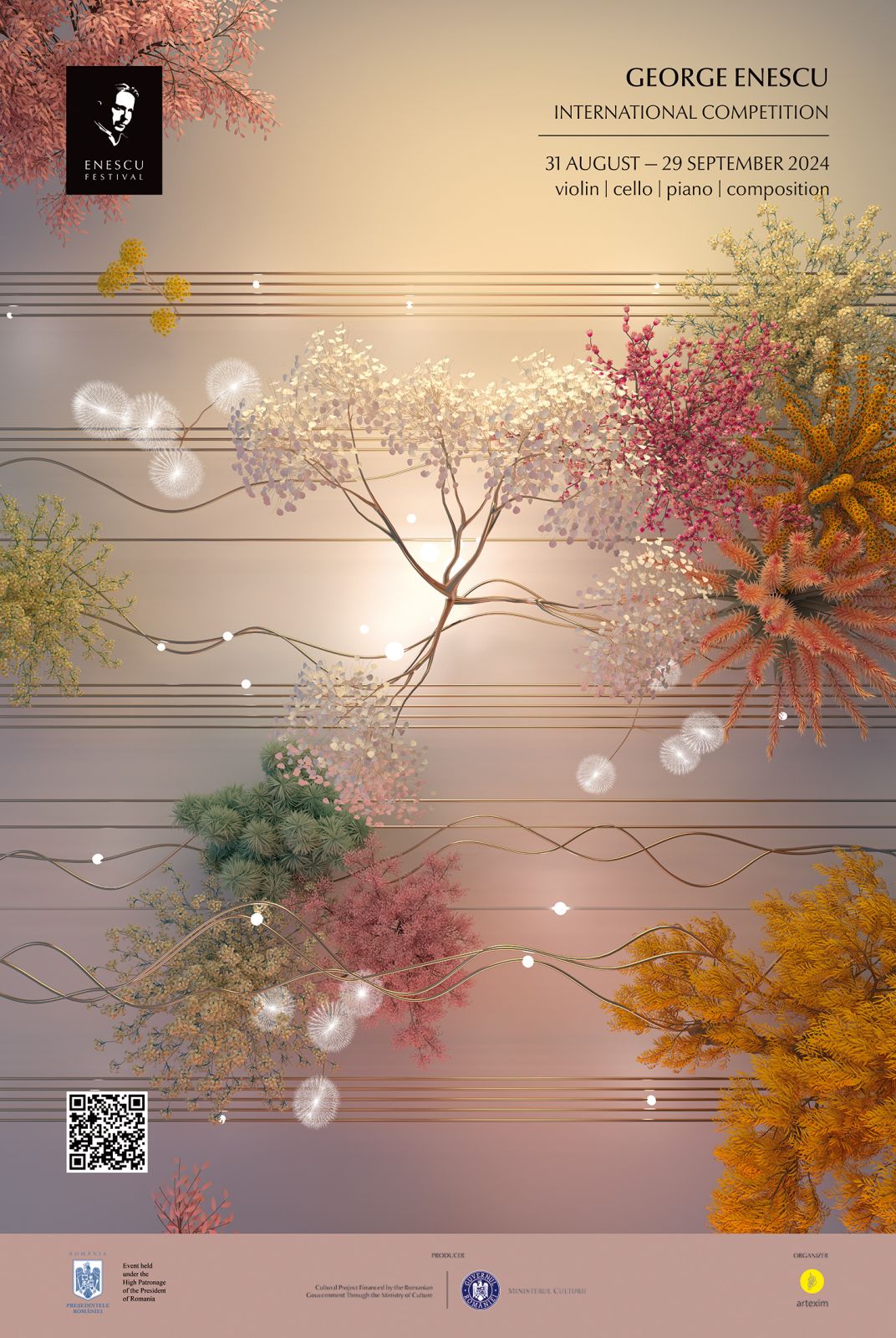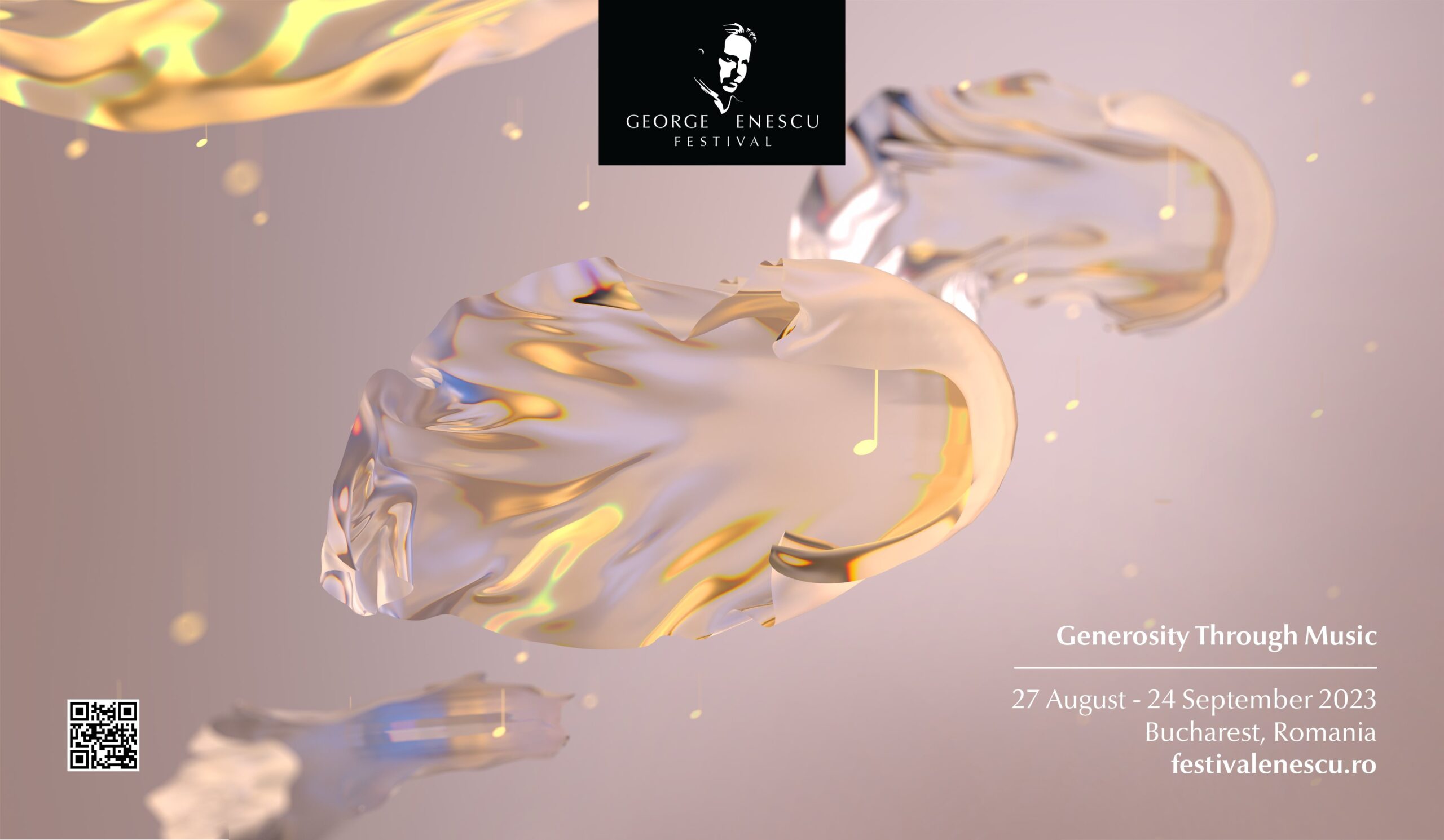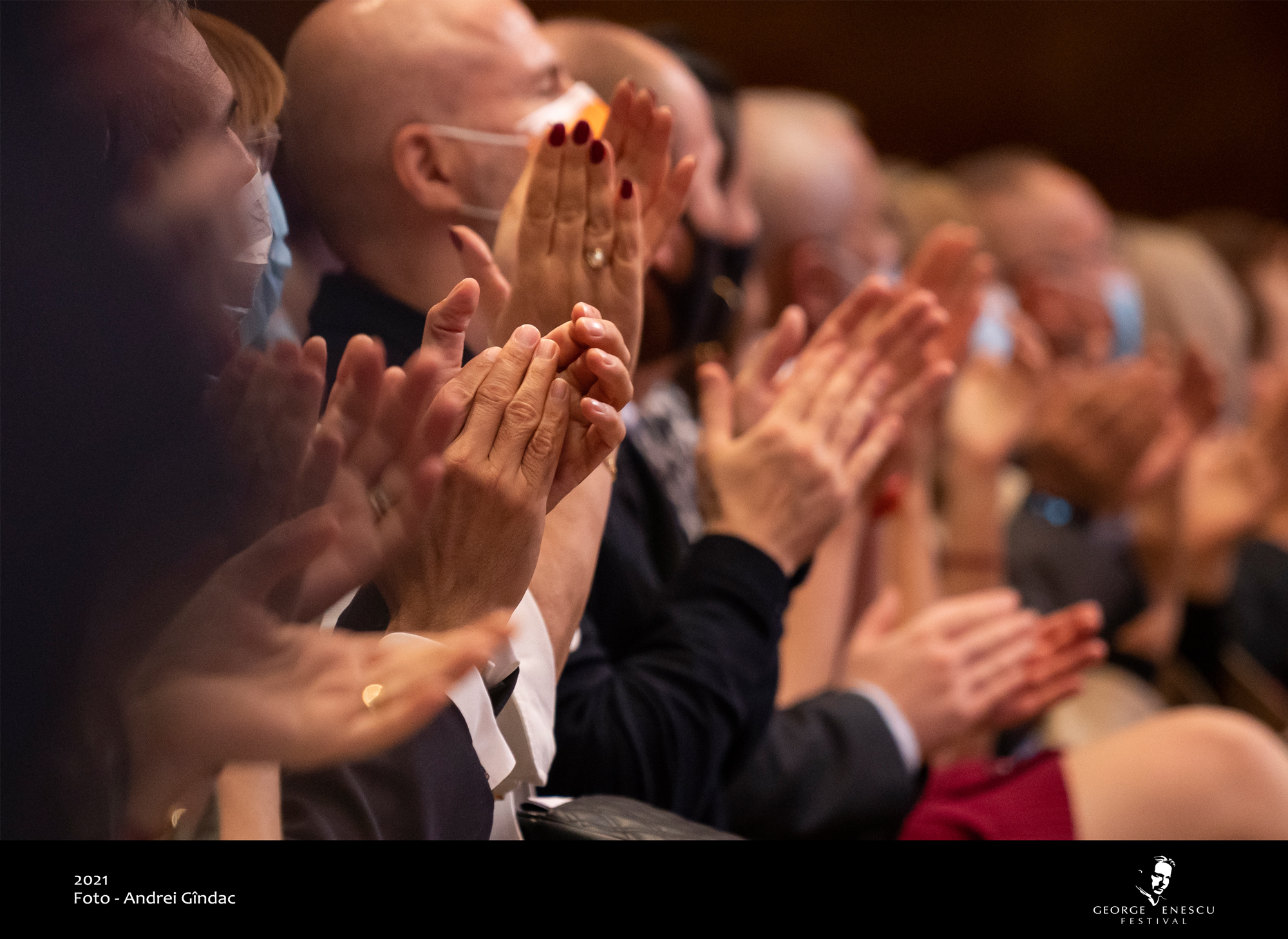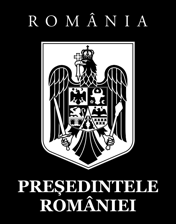Between June 8 and 11, the George Enescu Festival Online presents to classical music lovers a memorable version of the Missa Solemnis by Ludwig van Beethoven. The concert took place during the 2019 Festival, on the Romanian Athenaeum’s stage, performed by the Freiburger Barockorchester and the Zürcher Sing-Akademie choral ensemble, led by René Jacobs‘ clear and passionate conducting vision. The impeccable solo alignment: Polina Pastirchack – soprano, Sophie Harmsen – alto, Nikolaus Pfannkuch – tenor, and Johannes Weisser – bass, held a refined dialogue of nuances with the choral ensemble, thrilling the audience with the unfolding beauty of Beethoven’s vocal music. A storm of applause attested to the depth of the spiritual impact this astounding performance had on its audience.
Over fifty years old, completely deaf already, and deeply unhappy, it took Beethoven four years (1819-1823) to complete this monumental work, which the composer himself repeatedly described as being his best composition by far. “By crafting this great Mass, my main goal was to awaken religious feelings in singers and public, and to make them last,” said Beethoven about what critics unanimously considered to be one of the greatest creations of his entire career.
Written to honour Rudolph, the Archduke of Austria, who was to be invested as Archbishop in 1820, by a composer who was often said not to be the most religious of composers, Missa Solemnis is a testimony to a profound spirituality and the work through which Ludwig van Beethoven expressed his deepest personal religious feelings. Surly, hypochondriac and anti-social with his peers, Beethoven will note on the score, in this sense, an irrefutable dedication: “To my God, who has never left my side”.
Missa‘s orchestration is very complex, requiring a quartet of vocal soloists, a large choral ensemble, and a full orchestra. The extreme difficulty of the score requires great virtuosity, both the vocal and the instrumental parts being extremely demanding. The work, therefore, is performed quite rarely. Sir John Eliot Gardiner, the signer of a collector’s version of the Missa Solemnis, said in an interview that “the choir’s score in this work is like an ascent of Mount Everest.” Nevertheless, it was with his masterpieces of vocal music that Beethoven capped an astounding career. It was with voices of the Missa Solemnis and The Ninth Symphony that Beethoven confronted his inner silence and conversed with a world from which his deafness had isolated him completely.
All this makes the Missa Solemnis presented by the Freiburger Barockorchester under the baton of René Jacobs, in whose hands both the soloists and Zürcher Sing-Akademie choir became a magnificent musical instrument, to be a more valuable, memorable and overwhelming experience.
The Freiburger Barockorchester (FBO) was founded in 1987, to enliven the world of Baroque music with new sounds. In addition to baroque music, the orchestra performs works by composers such as Beethoven, Schubert and Weber and also contemporary music. The orchestra consists of 27 musicians and performs many of its concerts together with guest conductors, such as Ivor Bolton, René Jacobs, Philippe Herreweghe, Pablo Heras-Casado and Trevor Pinnock. Frequently invited to the most prestigious stages worldwide and to the most renowned festivals, FBO constantly collaborates with famous artists such as Christian Gerhaher, Isabelle Faust, Andreas Staier, and Kristian Bezuidenhout and has a close collaboration with the Harmonia Mundi record label. Their albums have received great awards, such as the Gramophone Award 2011, ECHO Klassik 2011-2016, and 2007, Jahrespreis der Deutschen Schallplattenkritik 2009, 2015 and 2016, Edison Classical Music Award 2008 or Classical Brit Award 2007.
Zürcher Sing-Akademie is renowned for its versatility and flexibility, performing at the highest level in both chamber and symphonic formulas. The musicians of the ensemble collaborate with numerous orchestras and have an extensive symphonic repertoire. They also perform a cappella programs and play an important role in promoting Swiss composers. The continuous development of the choral landscape is essential for its ethos; to this end, the Zürcher Sing-Akademie frequently commissioned new works and presented numerous premiere performances. Florian Helgath has been the conductor and artistic director of the Zürcher Sing-Akademie since 2017.
With more than two hundred and fifty recordings to his credit and an intensive schedule as singer, conductor, scholar, and teacher, René Jacobs has achieved an eminent position in the field of Baroque and Classical vocal music. He received his early musical training as a choirboy at the cathedral of his native city of Ghent (Belgium). Alongside his advanced studies of Classics at the University of Ghent, he continued to study singing. His encounters with Alfred Deller, the Kuijken brothers, and Gustav Leonhardt were to determine his orientation towards Baroque music and the countertenor repertory, in which he soon established his reputation. In 1977 he founded the ensemble Concerto Vocale with which he explored this repertory throughout Europe and in Japan. He then began to make a series of innovative recordings for Harmonia Mundi, all of which won awards from the international press.
photo credit: Andrada Pavel
